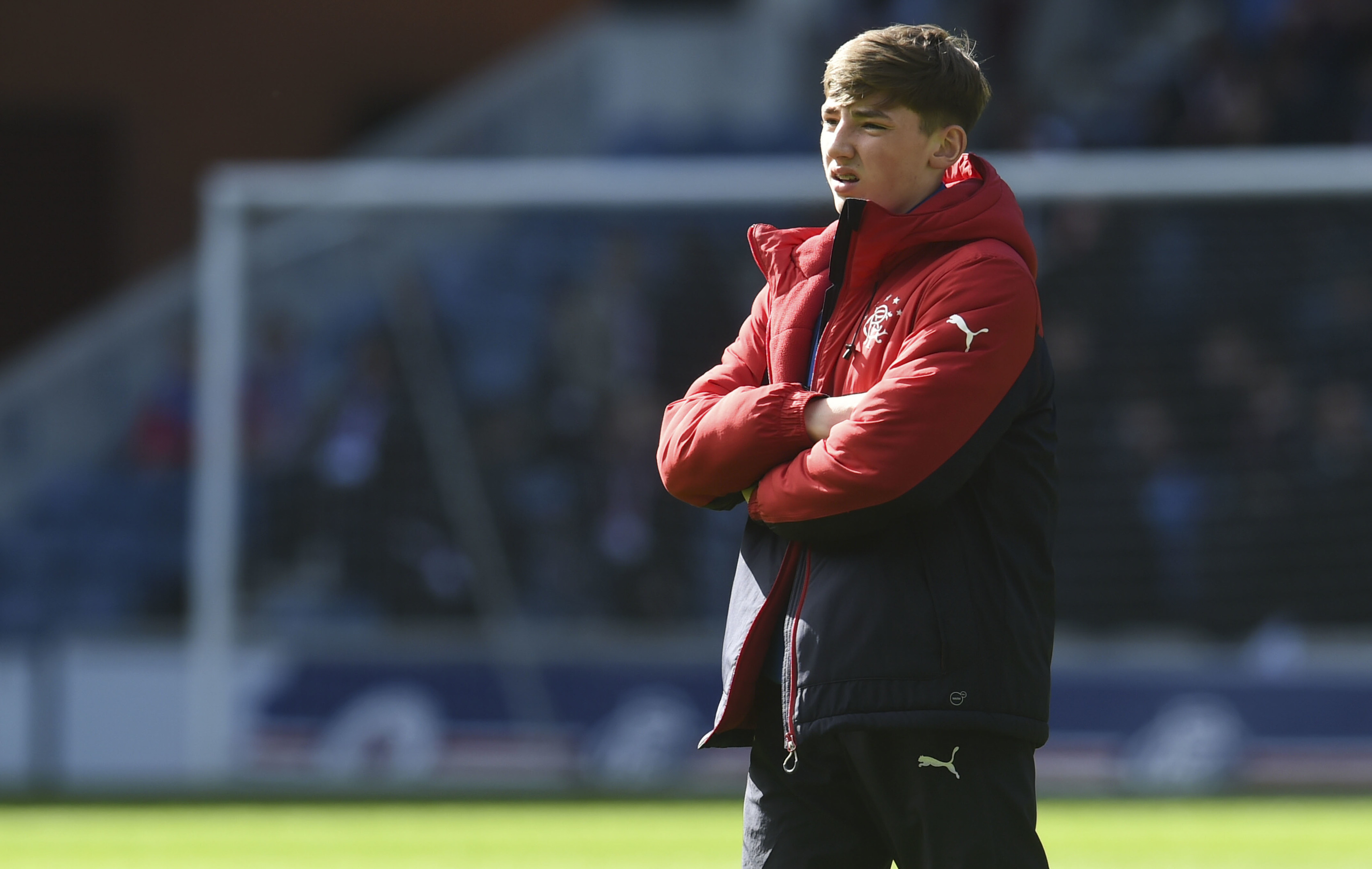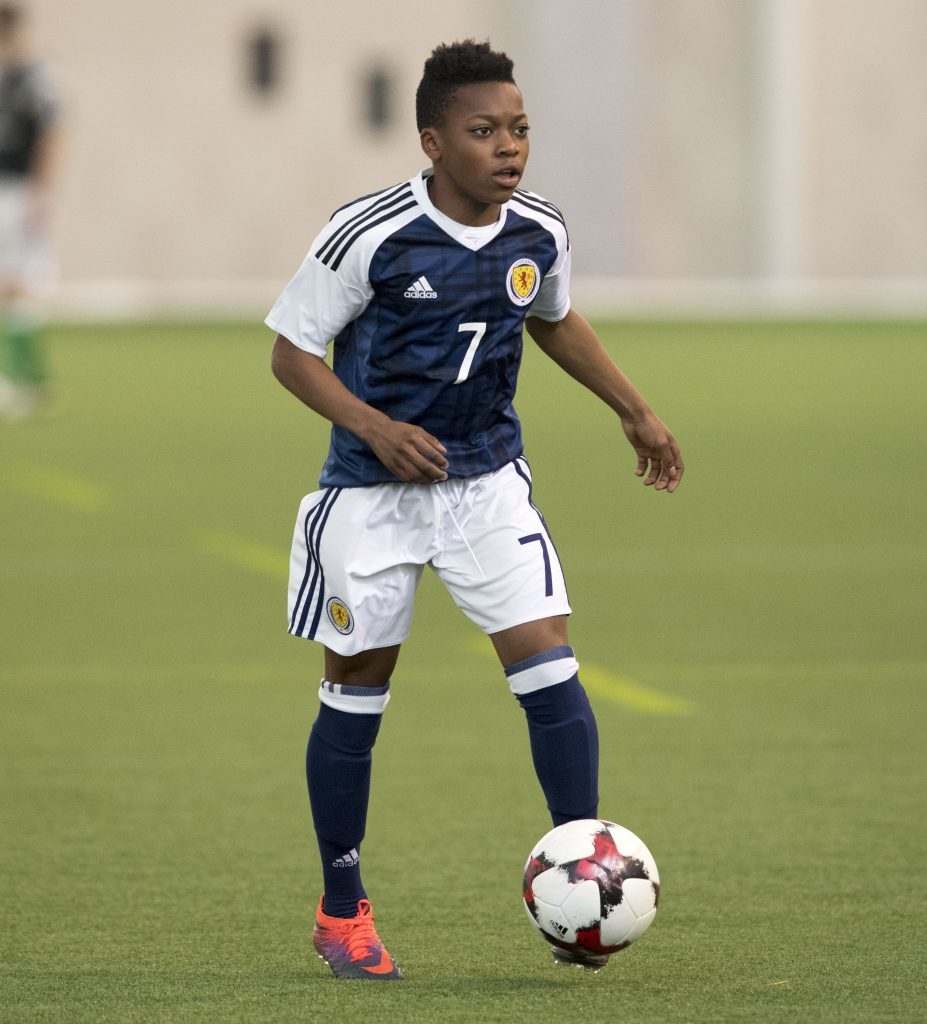
THERE is plenty of focus on young Billy Gilmour at Rangers right now, and what he will do with his future.
Many leading clubs in England want him and, according to reports, Chelsea would be willing to pay £500,000 for the midfielder, who’s still only 15.
There was a similar situation with Karamoko Dembele at Celtic five or six months ago.
Rangers want to keep Gilmour and sign him on a new contract. It’s the same with Dembele.
Now, I don’t know Billy or Karamoko, or their families. But in general terms, I’d urge all concerned to think very carefully about the decisions they make about their futures for the next two to four years.
If I turn the clock back 50 years or so, I had a few teams wanting to sign me. Back then, you played for an amateur team and the school team and scouts would come to watch the games.
If they thought you had ability, the scout would speak to your dad or the team manager and ask to get you in for a trial.
When I had options to consider, and had meetings with different club representatives, the focus for me was about the amount of games I would be playing and whether there was a pathway at that particular club for the youth players to the first team.
My parents’ focus was purely for my welfare, and whether I’d be happy at the football club and go to work with a smile on my face.
Back then, that’s what it came down to.
However, I do recall one club representative offered my dad an incentive to sign for his particular club – and my dad went ballistic.
Needless to say, that club quickly went out of the running for my signature. Money was never my motivation and wasn’t the motivation for my parents.
I ended up signing for Celtic and it all worked out very nicely.
I know things are different now, and there all sorts of financial incentives and other luxuries on offer to get young footballers to sign for a club.
But my advice to any young footballer and their families would be to not chase the money when they are at this stage of their careers and development.
Of course, some may say that’s easy for me to say because I’m sitting in the position of being a wee bit more fortunate than many others, and I totally understand that.
All I would say is that the financial rewards for being a footballer will come in time if you have a wee bit of luck, avoid injury, dedicate yourself and keep improving.
So when you are a teenager, the things to think about when choosing a club are the following.
- The educational aspect of the football club, not just academically but also in terms of preparing you for life as a person.
- The pathway into the first-team for young players.
- Who the first-team manager is and the commitment he has to the club and to giving kids a chance.
If you consider these, you’re on the road to making the correct choice. The rewards will hopefully follow.
So it’s vital for the young players and parents to do their homework on the interested clubs.
But I accept the process is not easy and things have become very complicated.
Liverpool were in the news the other day, and have been fined by the FA for being found guilty of tapping a schoolboy from Stoke City.
I don’t know anything about that particular case. But I do know many people work hard at the club’s academy and they have an excellent system in place.
There is also a pathway to the first-team, and Jurgen Klopp is absolutely aware of the good youngsters. Many of them train with the first-team on a regular basis.
When I was Liverpool manager, I tried to help out our recruitment department when I could.
If that meant talking to parents of a promising youngster, then I would, whether it was a schoolboy or a young professional.
I did so in the case of Jamie Redknapp.
More than 50 years ago, and before I joined Celtic, I trained for a week with West Ham and struck up a good relationship with Harry Redknapp, at the time a Hammers player.
We stayed in touch, and we both ended up in the professional game for decades.
Jamie came on to the scene as a 16-year-old at Bournemouth and Harry, his dad, was the manager.
I wanted to sign him, but Harry asked if we’d wait until Jamie was 17. We did, and the deal eventually went through.
Jamie was as good as gold and had the correct guidance from his parents. They put his welfare first, and the rest followed for their son.
That’s a perfect example for the parents of any aspiring youngster.

Enjoy the convenience of having The Sunday Post delivered as a digital ePaper straight to your smartphone, tablet or computer.
Subscribe for only £5.49 a month and enjoy all the benefits of the printed paper as a digital replica.
Subscribe